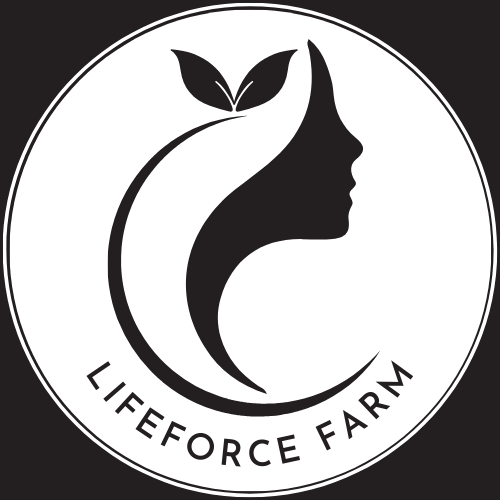The Challenges Of Farming Hemp In Australia
So, for those of you that do not know…prior to me becoming a Market Gardener, I was working in the Australian Hemp industry.
I actually came to my current farm site, as I ran some hemp seed trials here.
I worked establishing a Hemp Foods processing facility in Byron Shire, promoting the benefits of hemp foods to our community, government and business. I dedicated my time in talking with certified organic grain farmers around Australia to encourage them to trial hemp in their crop rotations…(hemp is a wonderful soil conditioner because of its deep tap roots).
The reason that many certified organic grain growers do not grow hemp, is the difficulty in getting hold of commercially viable seed at an affordable price, that will grow in our climate, and also the cost per kg of the grain they can sell it for. Much certified organic grain is sold between $4-8/kg from the farmer in Australia, however, certified organic seed can be imported at much less than this cost, sometimes at around $1-2/kg, so the processors are unwilling to pay the Australian farmers price. Thus there is only a very small amount of certified organic hemp grown in Australia, and little incentive for growers to grow it on a commercial scale…our cost of production, compared to 3rd world countries is significantly higher – our government does not provide any tariffs or protection for us like many other countries give to their growers- in fact they are entering into more free trade agreements
Growing hemp in Australia has some very particular challenges, as hemp is not native here. This means we are needing to create the industry from scratch in this country, which is why hemp is still a cottage industry at this time.
In countries that have maintained their hemp industry over time – China, Europe, Eastern Europe etc. there is a wealth of knowledge and infrastructure to support the industry. There are fibre factories to create cloth, and building materials, and hemp processing facilities to create food and medicine from the hemp. We are lacking in this essential infrastructure in Australia, though there are several groups working to raise money to build this infrastructure and develop the technology to make the hemp industry here in Australia commercially viable.
Being involved to such a degree in this industry, I came to learn what the standard farming practices are for raising hemp by the growers. I was deeply shocked when I started to visit some hemp fields and talk with farmers who described their crops as ‘Spray Free’, and organically grown…to discover that the way they prepare their paddocks for planting is to spray Roundup (glyphosate – known carcinogen) on the soil. Their argument was that they had no other way to prepare their land..and that because they didn’t need to spray the hemp as it germinated and grew, they could claim that it is a, spray free, organically grown crop, as they did not spray anything on the actual plant….extremely misleading to the consumers that they market their hemp seeds, hemp oil and hemp protein too :(( Especially as hemp is also known as a soil cleaner…meaning that it scavenges soil pollution, including radiation, thereby concentrating any impurities within the plant to free the soil.
Indeed I was told by a prominent leader of the hemp industry 4 years ago that hemp cannot be grown certified organic in Australia..so my efforts to do so are wasted.
This is why I choose to grow only certified organic hemp
And because of what I now know, I would not buy hemp products in this country that are not certified organic, if I did not personally know the grower, and trusted their farming practises.
In the northern hemisphere, we have a wet spring followed by a hot dry summer. This is the perfect climatic conditions required for a hemp crop to grow to maturity and be successfully harvested and processed. In Australia we have a hot, dry spring, and a hot summer with big storms followed by a wet season.
Hemp needs to be planted in spring, as it is a photoperiodic plant…this means that its growth to maturity is directed by the lengthening daylight as we move from the spring equinox through to the summer equinox. So, in order to successfully germinate hemp seed in the field in Australia, we are needing to irrigate the crops for the first 6 weeks, as we do not have a wet spring to do this for us…. I can’t tell you the amount of failed hemp trials I have seen because they did not irrigate the crop adequately to begin with
Hemp is approximately a 16-20 week crop, and needs to be harvested dry to prevent mould and fungus claiming it. Enter another issue – we often experience huge storms at the end of summer, and our wet season traditionally comes then too…making it the worst time climatically to harvest the crop, which is when it is ready. There are several teams in Australia who are working on some seed varieties that would be better suited to our climate, and can be planted in our wet season (early autumn) and harvested in our dry season (winter)… however these seeds are being developed under PBR (plant breeding rights), so are expensive, have limited supply and compliance issues…short story – not readily available or accessible.
There are many misconceptions about growing hemp…it doesn’t require water, nutrition, doesn’t get pests etc. As any farmer will know, if you do not adequately prepare the soil and provide the right conditions for your crops, and use viable seed that is climatically appropriate….then problems will arise! Hemp needs the same attention as any other crop if you want a successful harvest.
Hemp is indeed a most wonder-full plant,
with myriad uses that we are only beginning to remember, and develop…
from my heart to yours,
sheia x
